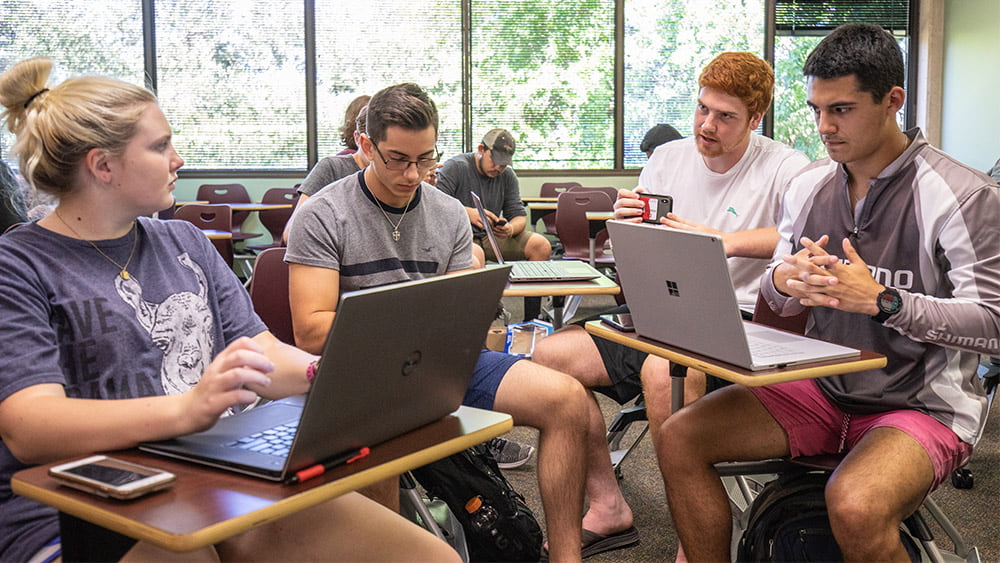
First Year Undergraduate Curriculum
Undergraduate students at Texas A&M Galveston have two pathway options for admission to the College of Engineering: Direct Admission for students who wish to complete their Bachelor of Science in ocean engineering (only available on the Galveston campus). Admission to General Engineering, which allows students to start their studies in Galveston with the option to either complete their degree in Galveston or transition later to the main campus through the Entry-to-a-Major process.
Learn How to Enter a Major
The Bachelor of Science in ocean engineering degree can be earned in its entirety at either the College Station or Galveston campus. The curriculum includes courses in written communication skills, humanities, social sciences, and American heritage to ensure a well-rounded education. Courses that directly apply to ocean engineering include: coastal engineering, dynamics of ocean systems, engineering design of offshore and coastal systems, fluid mechanics, marine hydrodynamics, naval architecture, numerical methods, ocean engineering laboratory, ocean wave mechanics, oceanography, offshore and coastal structures, underwater acoustics, and underwater and moored system design. A number of approved technical elective courses are also required.
View Current Program Requirements
Courses
The Department of Ocean Engineering offers a large number of undergraduate courses for students pursuing the Bachelor of Science in ocean engineering.
Several of the core requirements courses (e.g. ENGR 102 or CVEN 446) are also taught from different departments within the College of Engineering.
Core Curriculum Electives
Of the 21 hours shown as University Core Curriculum electives, 3 must be from creative arts, 3 from social and behavioral sciences, 3 from language, philosophy and culture, 6 from American history and 6 from government/political science.